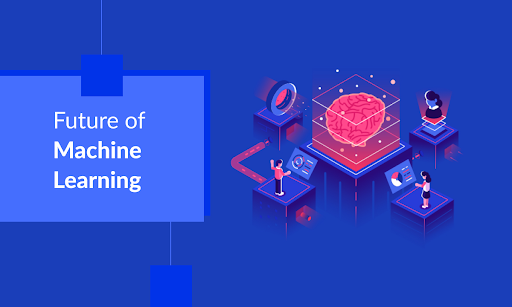
Machine learning (ML) is transforming the way we interact with technology, shaping industries, and redefining the future of work. From self-driving cars to personalized recommendations on streaming platforms, machine learning is at the core of modern innovation.
But what exactly is machine learning, and how is it impacting our world? More importantly, what does the future hold as AI and ML continue to evolve? This article explores the rise of machine learning, its applications, and its potential impact on various industries.
What Is Machine Learning?
Machine learning is a branch of artificial intelligence (AI) that enables systems to learn from data and improve their performance without explicit programming. Unlike traditional software, which follows predefined rules, ML algorithms analyze patterns and make data-driven decisions.
The more data an ML model processes, the better it becomes at recognizing trends and making predictions. This ability has led to groundbreaking advancements in automation, analytics, and problem-solving.
How Machine Learning Has Evolved
The concept of machine learning dates back to the mid-20th century, but recent advancements in computing power and data availability have fueled its rapid growth. Some key milestones include:
- 1950s-1970s – Early AI experiments and the creation of neural networks.
- 1980s-1990s – Introduction of deep learning concepts and improved computing capabilities.
- 2000s-Present – Explosion of big data, cloud computing, and AI-driven applications in everyday life.
Today, ML models are integrated into a vast range of applications, powering everything from voice assistants to fraud detection systems.
Real-World Applications of Machine Learning
1. Healthcare
Machine learning is revolutionizing healthcare by improving diagnostics, drug discovery, and patient care. AI-powered systems can detect diseases like cancer in early stages, analyze medical records, and suggest personalized treatments.
For example, IBM Watson Health uses AI to assist doctors in diagnosing and treating complex illnesses, while Google’s DeepMind has developed AI models capable of predicting eye diseases with remarkable accuracy.
2. Finance and Banking
The financial industry has embraced ML to detect fraud, automate trading, and enhance customer service. AI-powered chatbots, such as those used by banks, can provide instant customer support and financial advice.
Additionally, ML algorithms analyze spending patterns to detect fraudulent transactions, helping protect users from financial scams.
3. Retail and E-commerce
Retailers use machine learning to personalize shopping experiences, optimize supply chains, and forecast demand. Recommendation engines, such as those used by Amazon and Netflix, analyze user behavior to suggest products or content tailored to individual preferences.
4. Autonomous Vehicles
Self-driving cars rely on machine learning to navigate roads, recognize traffic signs, and make real-time driving decisions. Companies like Tesla and Waymo are investing heavily in AI to develop safer and more efficient autonomous vehicles.
5. Manufacturing and Automation
Manufacturing companies are leveraging ML for predictive maintenance, quality control, and robotic automation. Smart factories use AI-driven sensors to detect equipment failures before they occur, reducing downtime and maintenance costs.
6. Cybersecurity
Cybersecurity firms use ML to detect and prevent cyber threats in real time. AI-driven security systems analyze network activity to identify suspicious behavior and mitigate potential attacks.
7. Natural Language Processing (NLP)
NLP enables machines to understand and process human language. Virtual assistants like Siri, Google Assistant, and Alexa use NLP to interpret voice commands and respond intelligently. Businesses also use NLP-powered chatbots to enhance customer support services.
The Future of Machine Learning
As machine learning continues to advance, its influence will expand across various industries. Here are some key trends that will shape the future:
1. AI-Powered Creativity
Machine learning is already being used to generate music, art, and even write articles. AI models like OpenAI’s GPT can produce human-like text, while tools like DALL·E create digital artwork from text descriptions.
2. Improved Human-AI Collaboration
Rather than replacing human workers, ML will enhance productivity by assisting with complex tasks. AI-driven tools will support decision-making in fields like medicine, law, and engineering.
3. Ethical AI and Bias Reduction
One of the biggest challenges in AI development is bias in machine learning models. Researchers are working on ethical AI frameworks to ensure fairness and transparency in AI decision-making.
4. AI in Education
Machine learning will transform education through personalized learning experiences, AI tutors, and automated grading systems. Adaptive learning platforms will tailor lessons to individual students based on their progress and learning style.
5. Smarter Healthcare Systems
AI will continue to improve medical diagnostics, drug discovery, and robotic surgeries. Personalized medicine, powered by ML, will enable doctors to prescribe treatments based on an individual’s genetic profile.
6. More Advanced Robotics
AI-driven robots will play a larger role in industries like construction, logistics, and space exploration. Autonomous drones, robotic assistants, and AI-powered manufacturing processes will become more common.
Challenges and Concerns of Machine Learning
Despite its benefits, machine learning also raises important ethical and practical concerns:
- Job Displacement – Automation may replace certain jobs, requiring workers to adapt and learn new skills.
- Data Privacy – ML models require vast amounts of data, raising concerns about privacy and security.
- Algorithm Bias – AI systems can inherit biases from training data, leading to unfair outcomes.
- Dependence on AI – Over-reliance on ML could reduce human critical thinking and decision-making skills.
To address these challenges, governments, businesses, and researchers must collaborate to develop responsible AI policies and guidelines.
How Businesses Can Prepare for the Future of ML
To stay competitive in an AI-driven world, businesses should:
- Invest in AI Training – Educate employees on AI and ML applications to improve adaptability.
- Adopt AI-Powered Tools – Use ML-driven analytics, automation, and customer service enhancements.
- Focus on Ethical AI – Implement fair and transparent AI practices to build trust with customers.
- Stay Updated on AI Trends – Monitor technological advancements to remain competitive in the market.